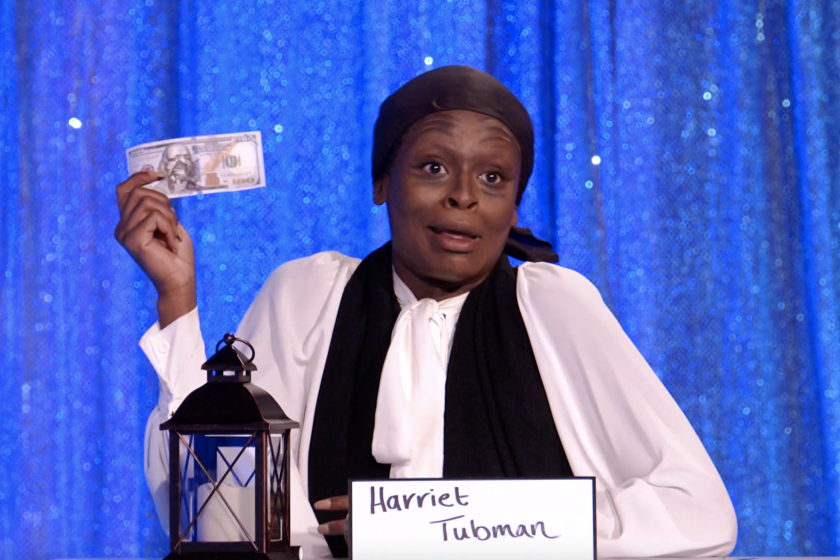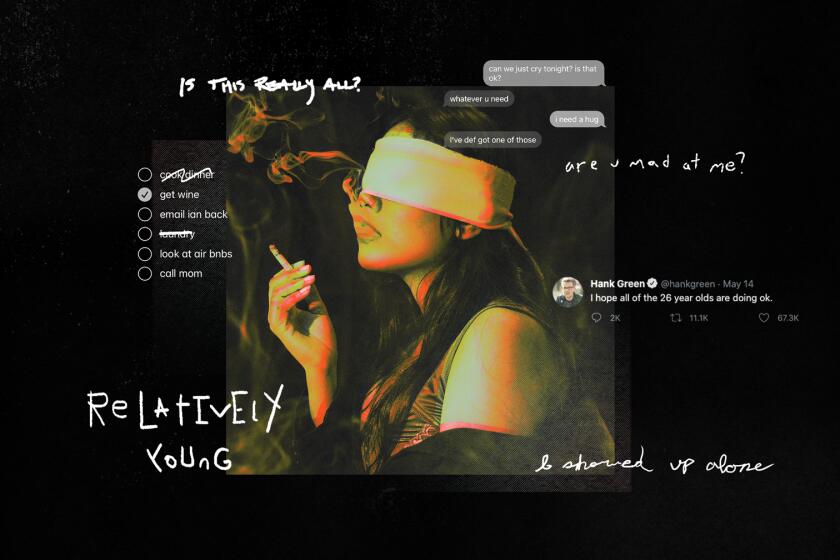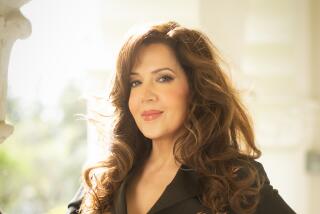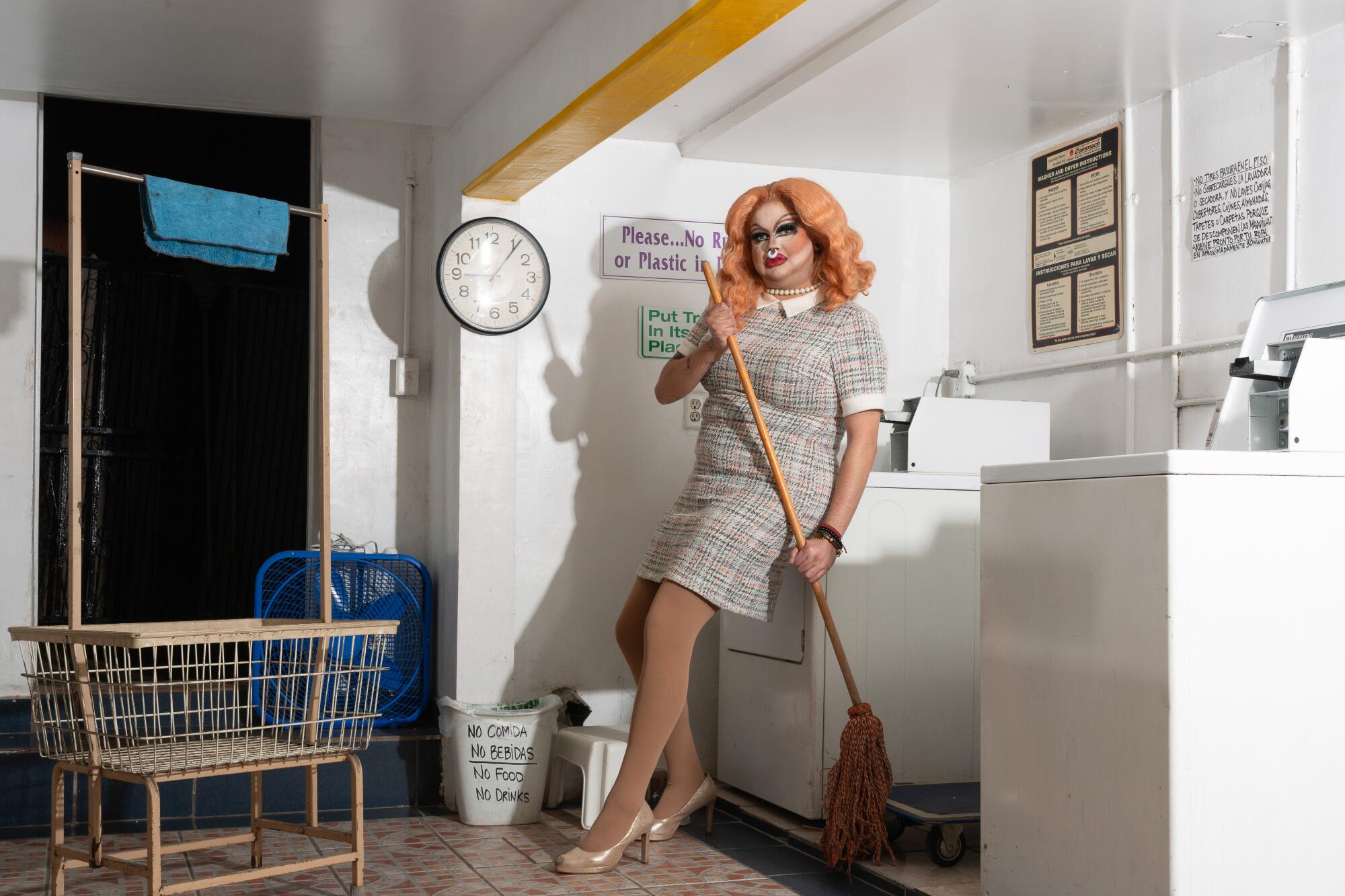
- Share via
The bonds LGBTQ people create with one another often are modeled on more socially sanctioned ones. You call a hot older guy your “daddy.” You refer to your best friend as your “sister.” You may be invoking a family unit, but the connotations are much more slippery; you’re always playfully twisting their definitions. Such is the case with the concept of a “drag mother.”
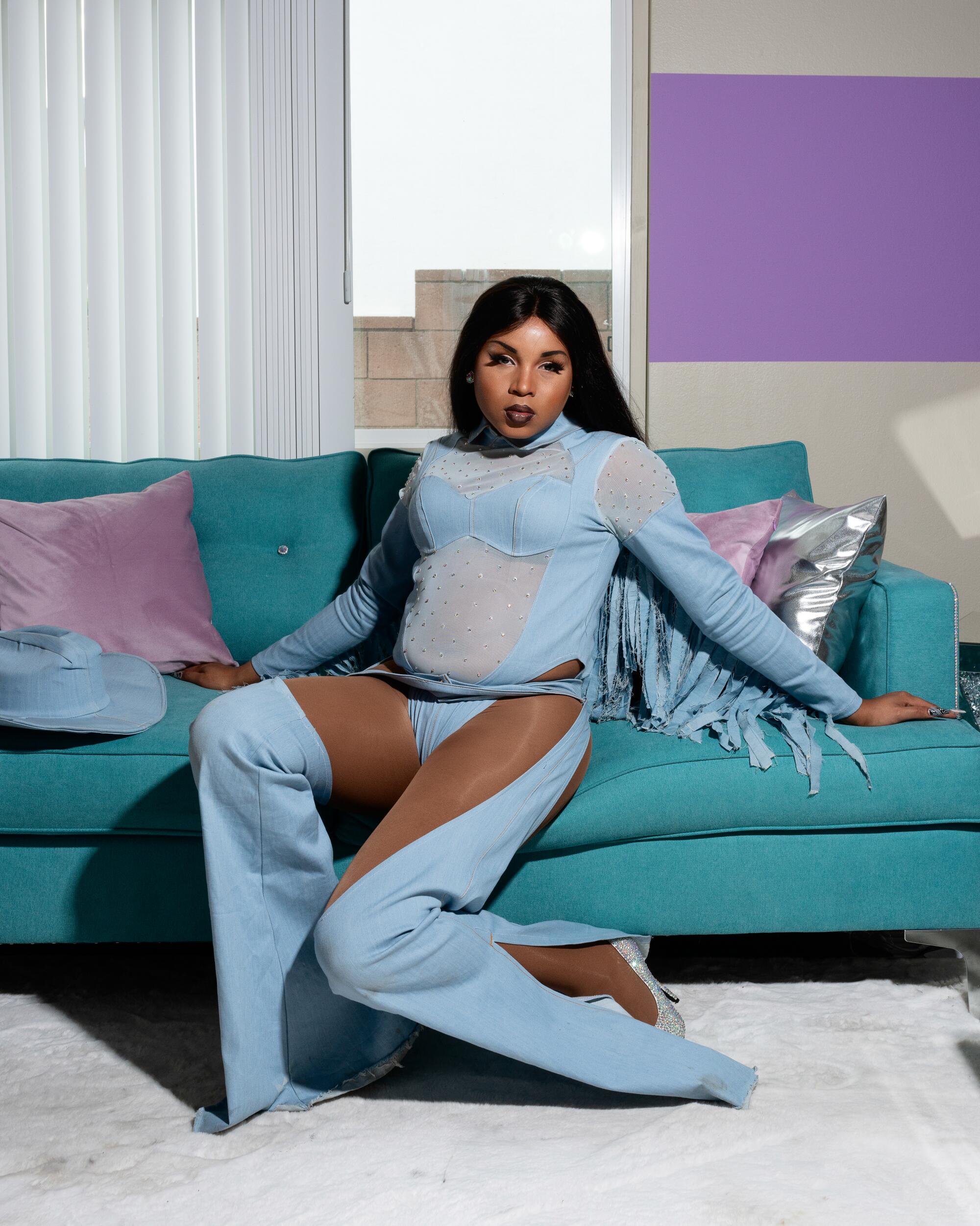
This maternal figure within the drag world is both a caregiver and a mentor. They’ll just as readily give their adopted kids tips on their makeup and their performances as they will gladly offer both their ear and home.
For many, the mothering they offer is something they were denied within their own biological families. For others, their decision to foster these relationships comes from knowing how important it can be to have someone in your corner: someone who’ll encourage you when you’re down and bring out the best in you, and who will also, let’s be honest, read you to filth if you’re not measuring up.
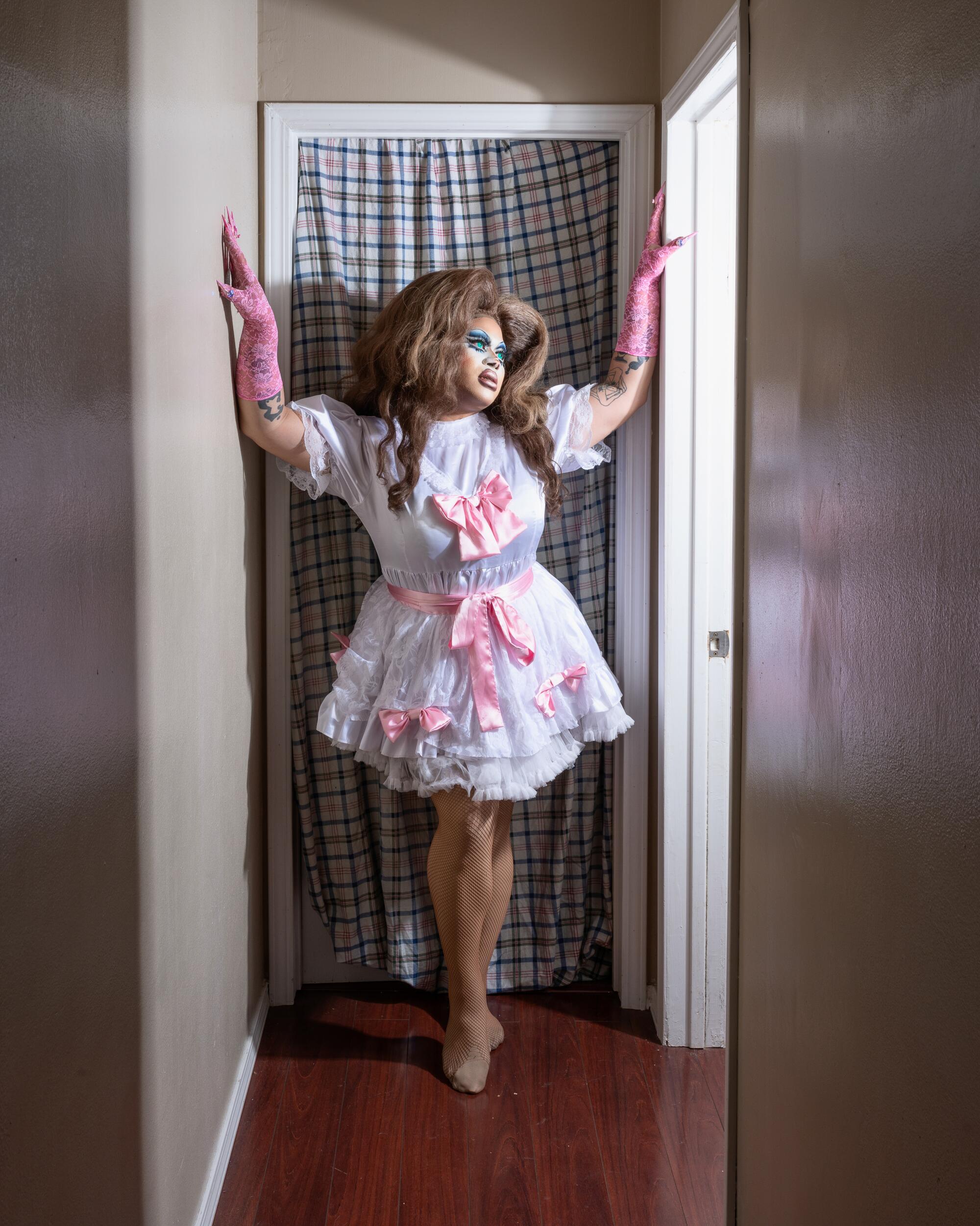
Which is not to say these bonds aim to merely replicate any other kind of known family dynamic. For one, drag queens often find themselves informally adopting kids at a young age. And, of course, it’s a mutual decision; a commitment two queens make to each other.
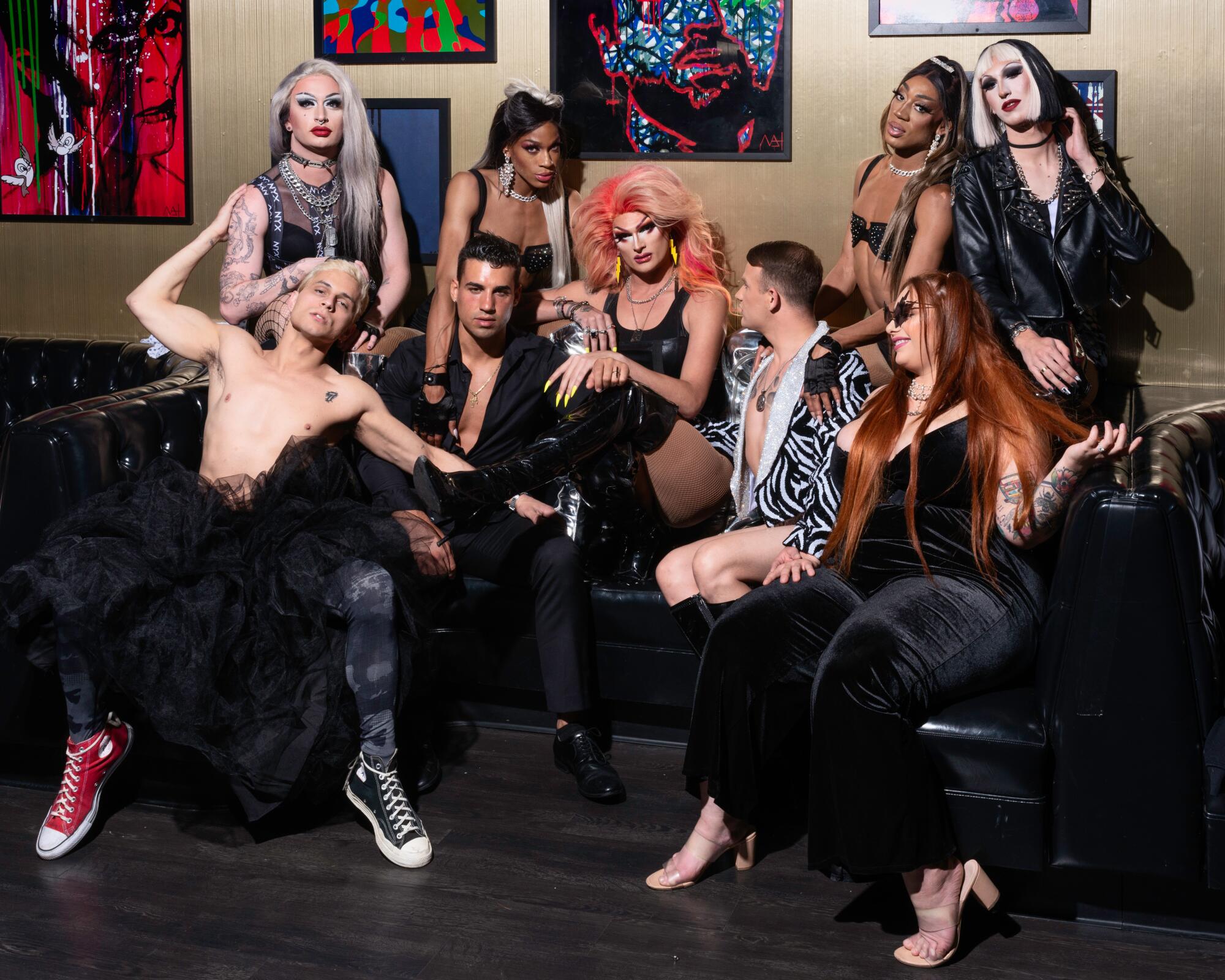
A drag mother, then, both reifies and defies motherhood as we understand it. To illustrate such complementary contradictions, we talked to a group of L.A. queens who have, over the years, taken folks under their wings. They shared their journeys with us: how they embraced such a label, how they mentor and mother their kids, and what they’ve learned about themselves along the way.
Sasha Colby
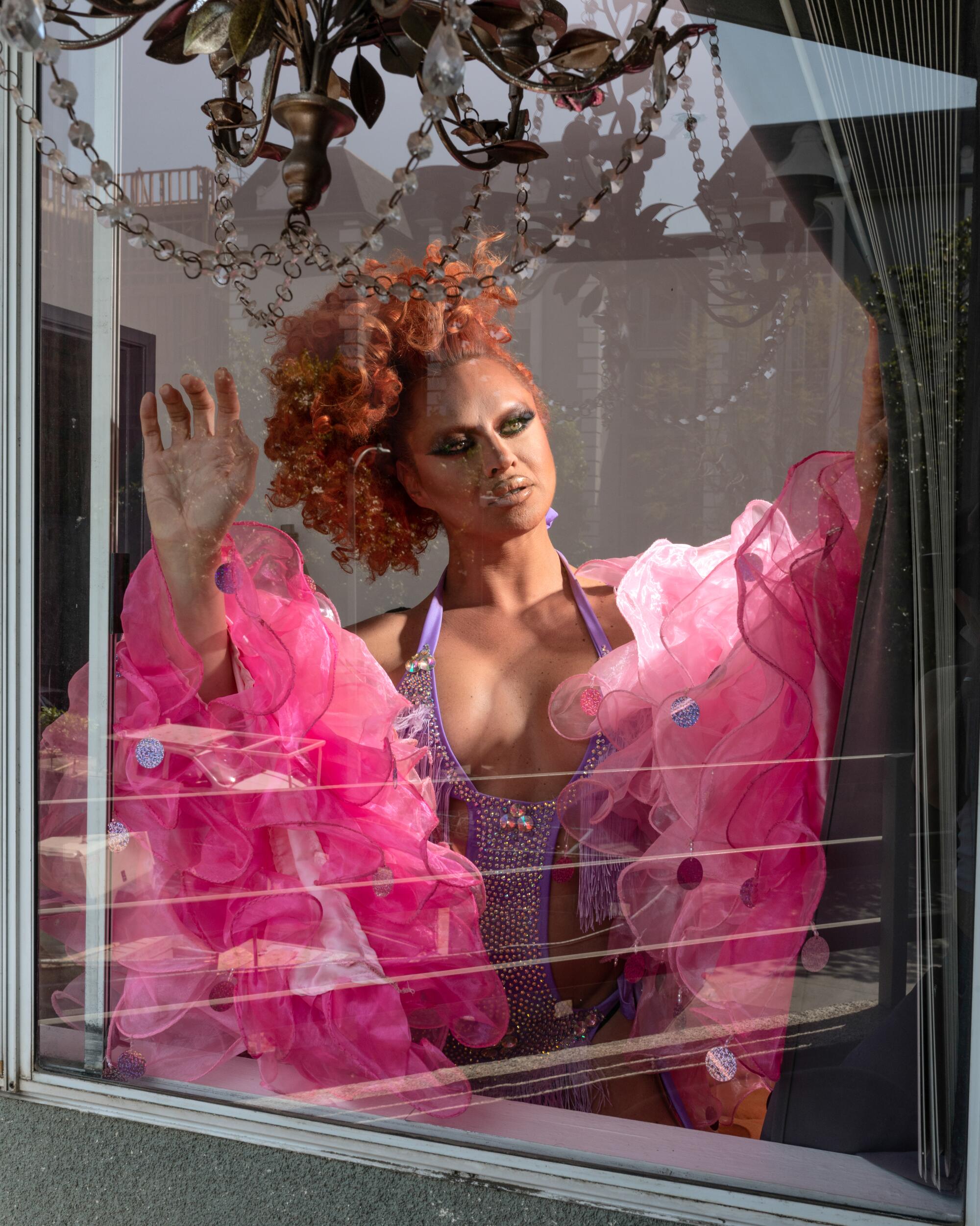
Representation offers us possibilities. Growing up with images like those in 1995’s “To Wong Foo, Thanks for Everything! Julie Newmar” left a young Hawaiian kid with a skewed vision of what drag could be.
It wasn’t until she met the legendary Cassandra Colby (her eventual drag mother) that the now equally legendary Sasha Colby got to see trans women be beautiful goddesses onstage. Such an image reframed how she herself would come to understand her life, her body and even her drag.
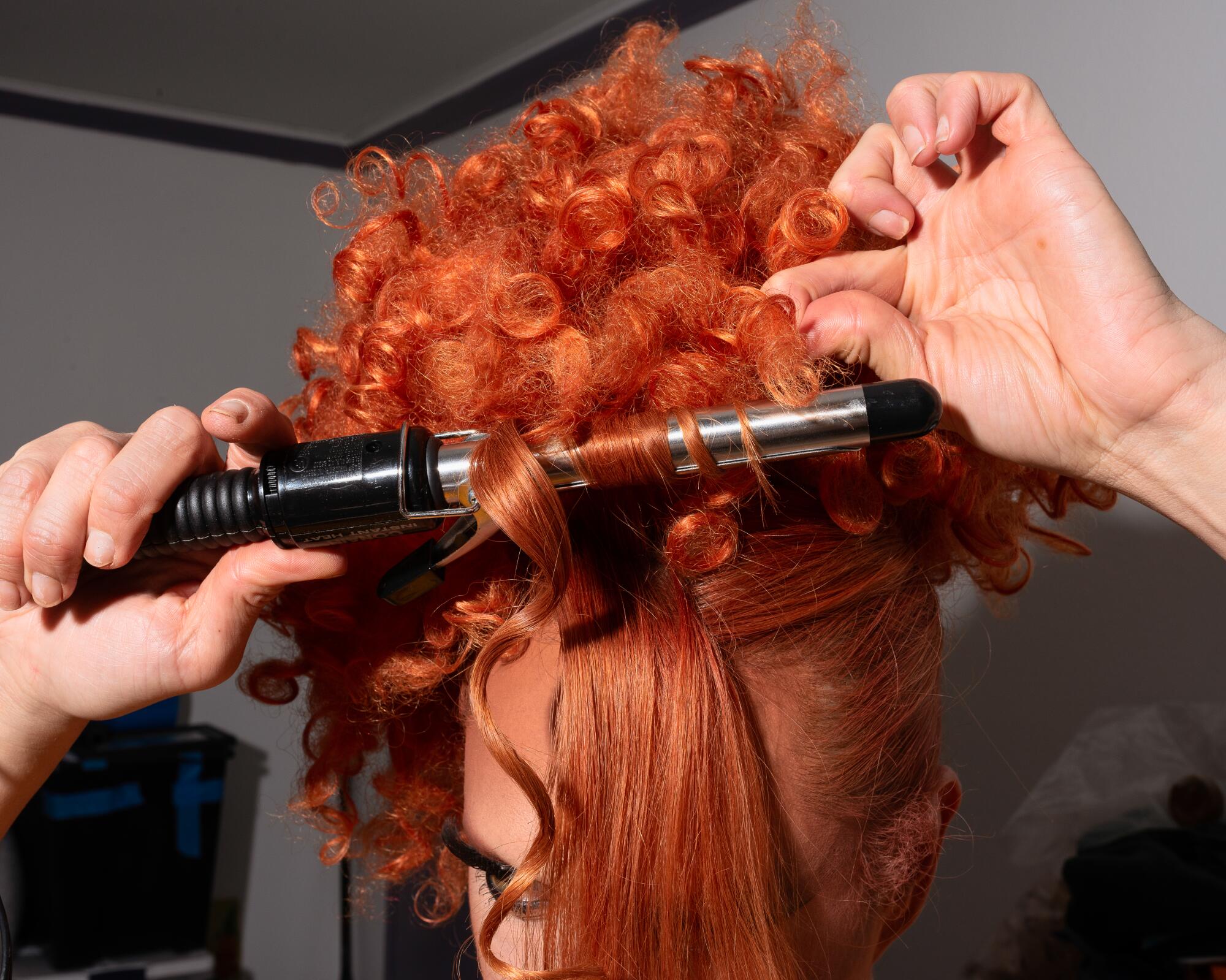
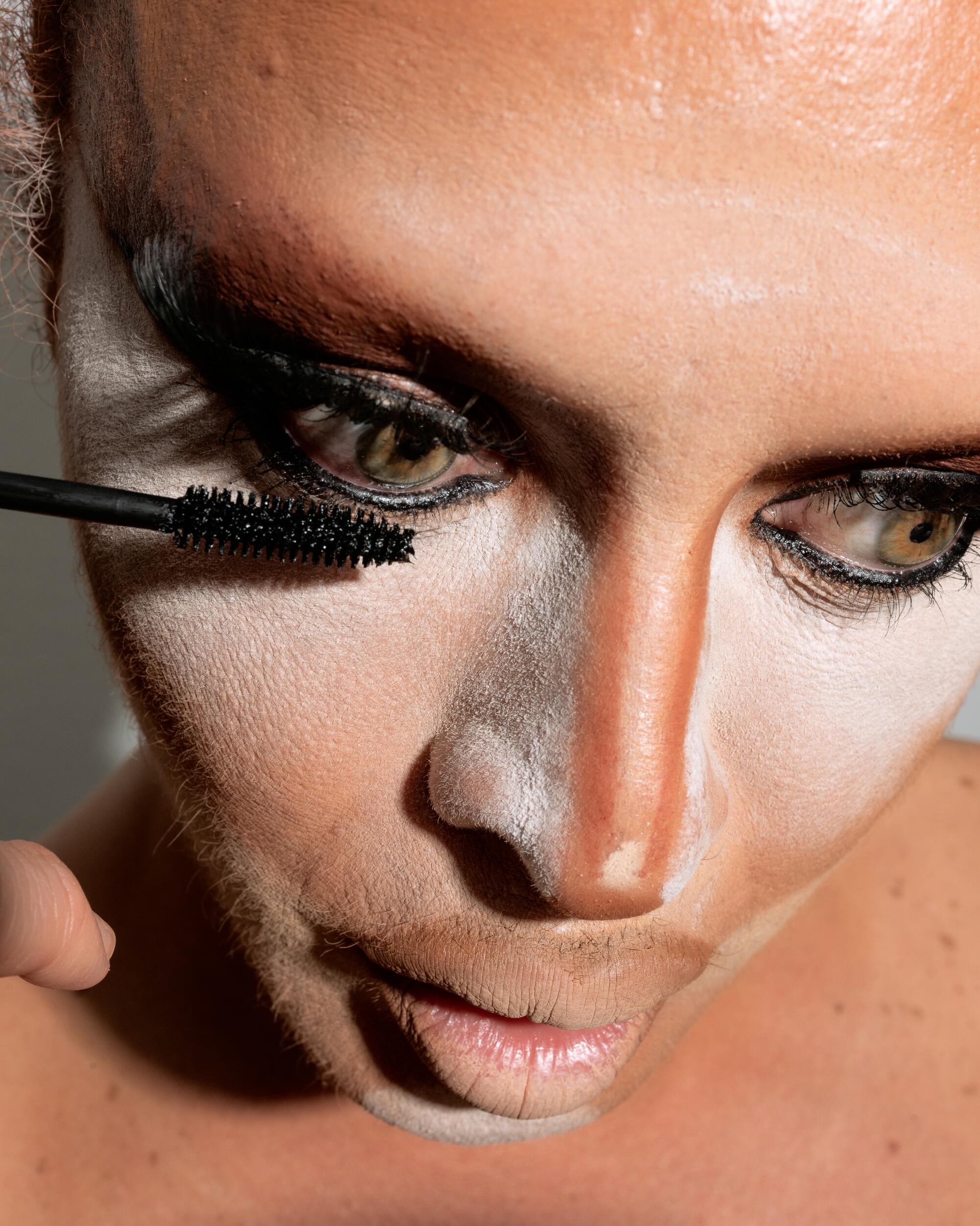
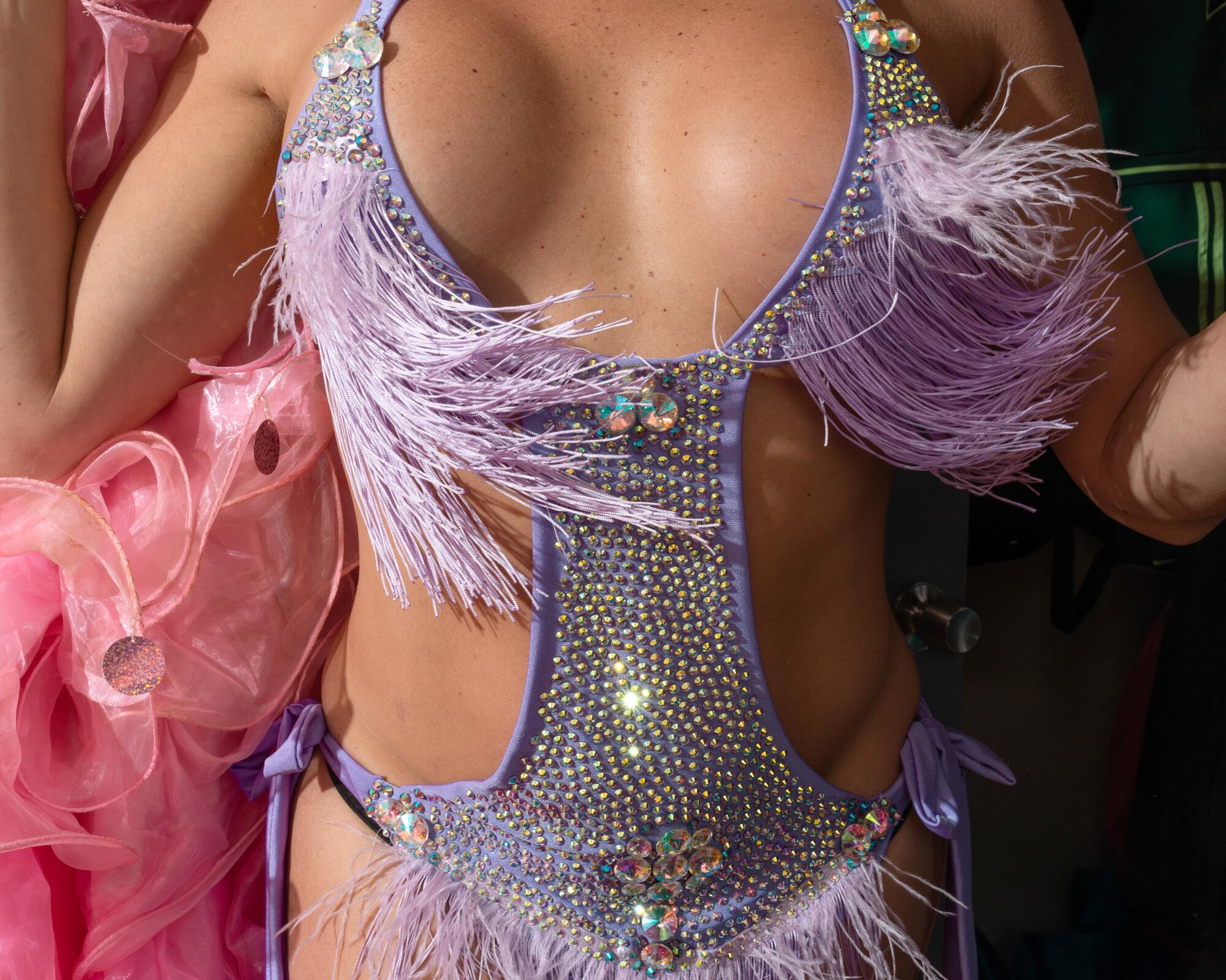
In the years since, Sasha Colby has amassed a number of sons and daughters all over. But it’s her Los Angeles folks (who include recent “RuPaul’s Drag Race” Season 14 standout Kerri Colby) whom she considers family.
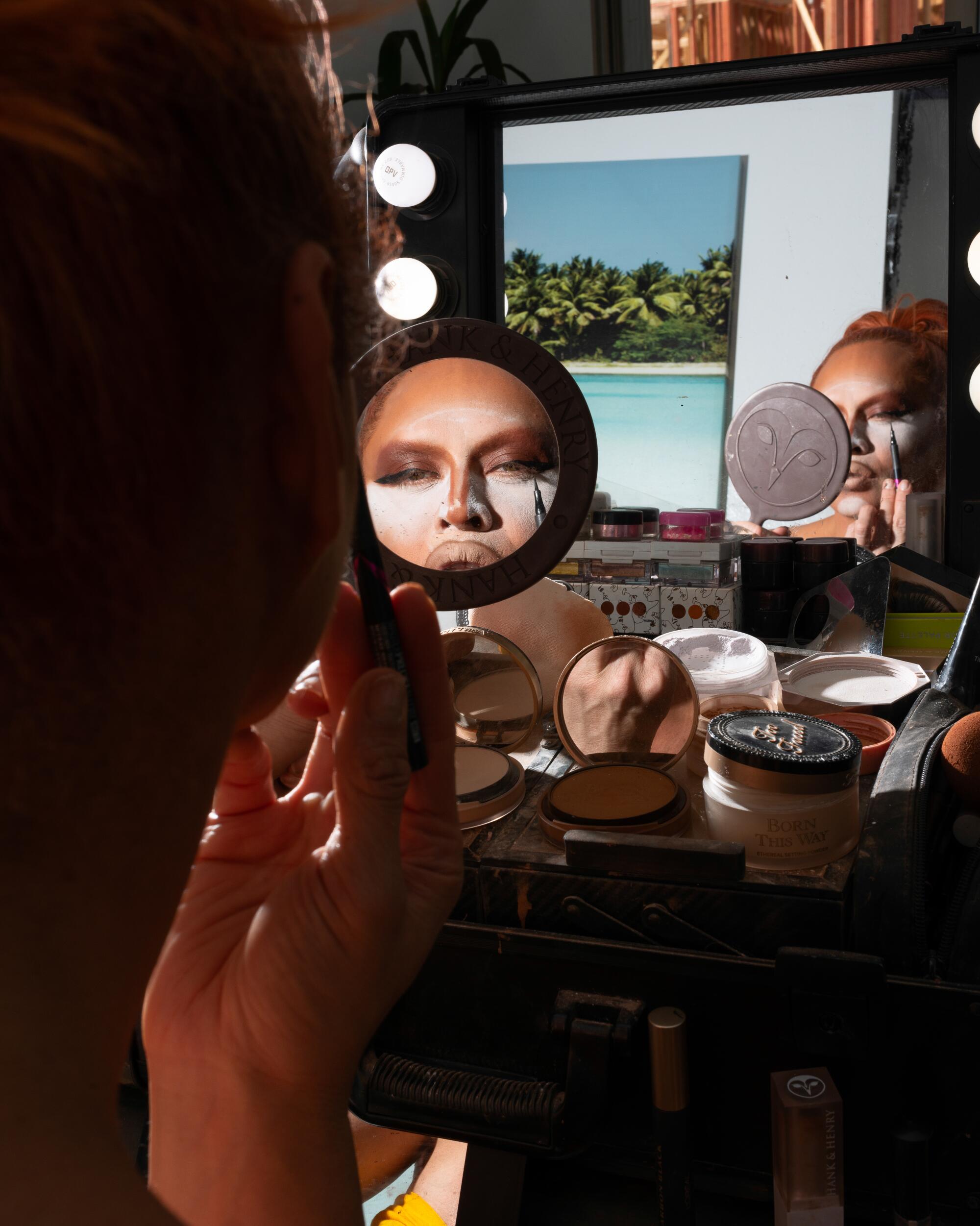
“They are my name now. I need to make sure to invest in them, make sure they’re good and cared for and nurtured to grow like how I was. They’re going to be the ones who pass on the legacy when I’m in a rocking chair and a neck brace.”
Though Colby relishes being a mother to her talented kids, she doesn’t conceive of her role as the label is often understood. “The idea that I have of a normal family — our given family — isn’t anything I would want to measure it up against,” she says, acknowledging that she felt quite stifled in her own home growing up.
She prides herself instead on building a welcoming space, something she didn’t have in a Jehovah’s Witness household.
“Queer families make you feel safe to be yourself, which is so liberating. It feels like a hug.”
With ‘Snatch Game,’ VH1’s competition to find ‘America’s Next Drag Superstar’ submits contestants to a time-honored test. Here’s why it’s so tough.
Melissa Befierce
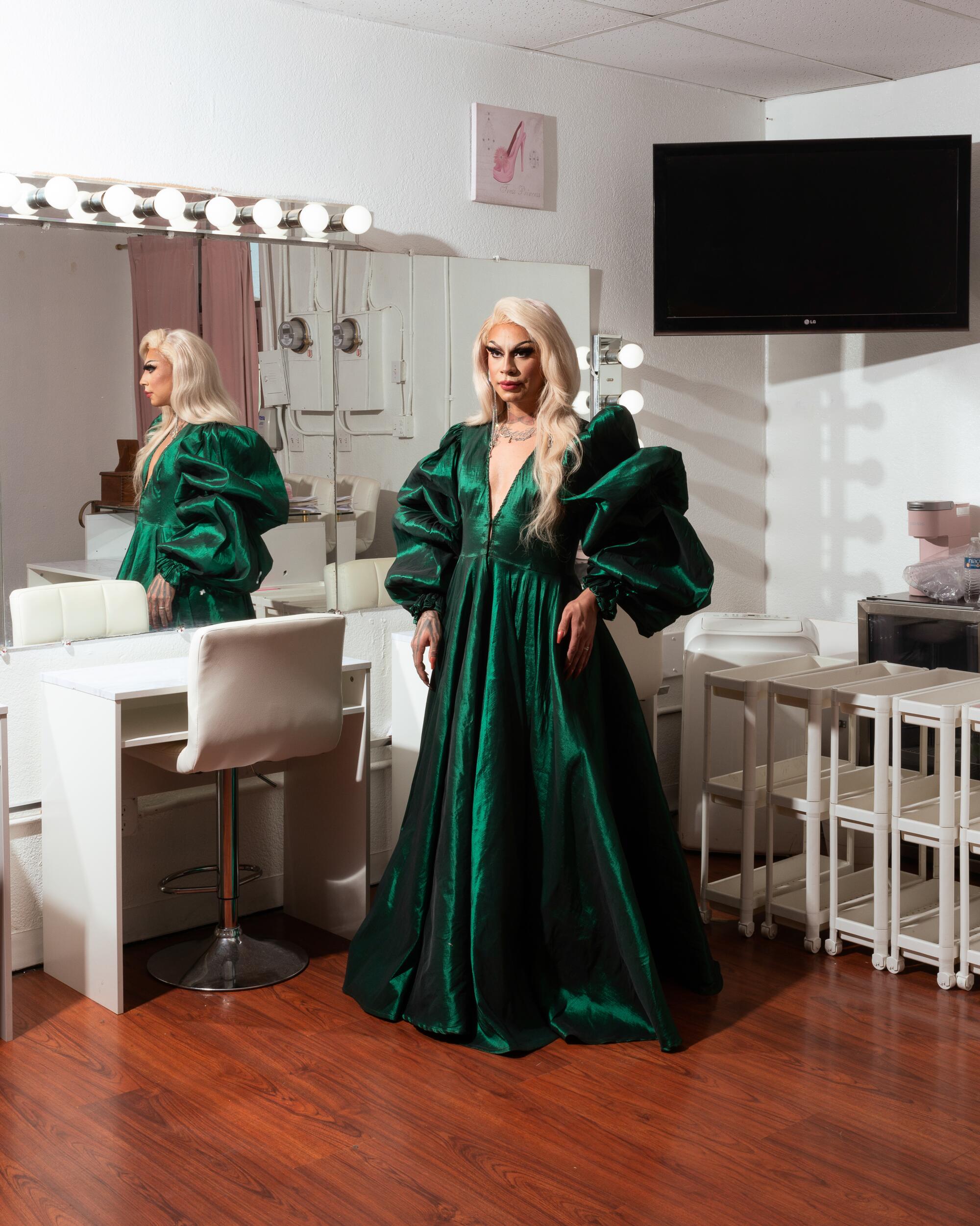
In the beginning, back when she used to go by “Phoenix,” Melissa Befierce had no one to show her the ropes. Like many self-made queens in the 21st century, she found what she needed online. She scoured the internet for video tutorials that helped her refine her makeup and her take on drag.
The creation of the Haus of Befierce, her drag family, followed a similar DIY approach. “I didn’t really know what a house was,” she recalls. “I think I kind of learned what a house was as I was going through my own stages of drag.”
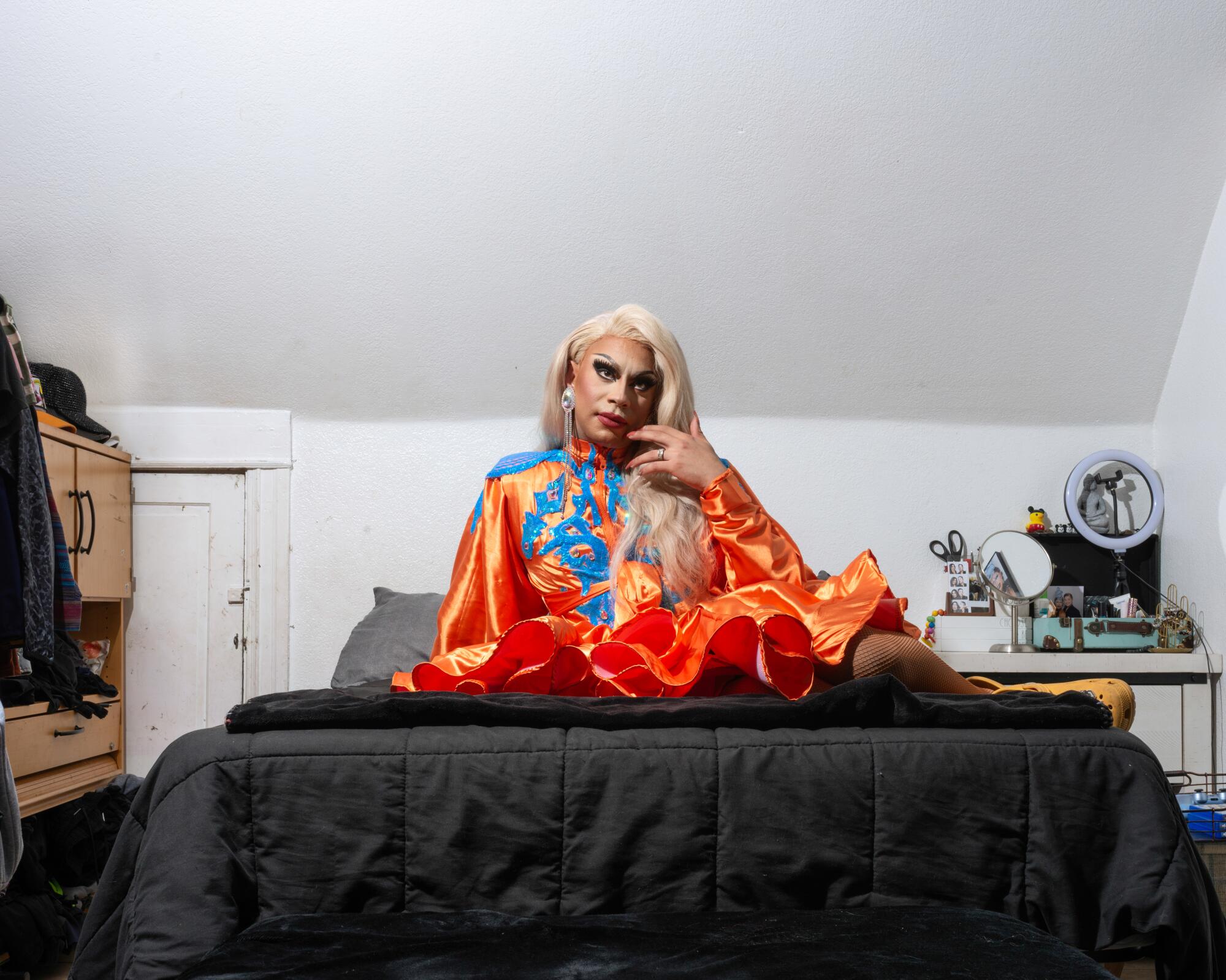
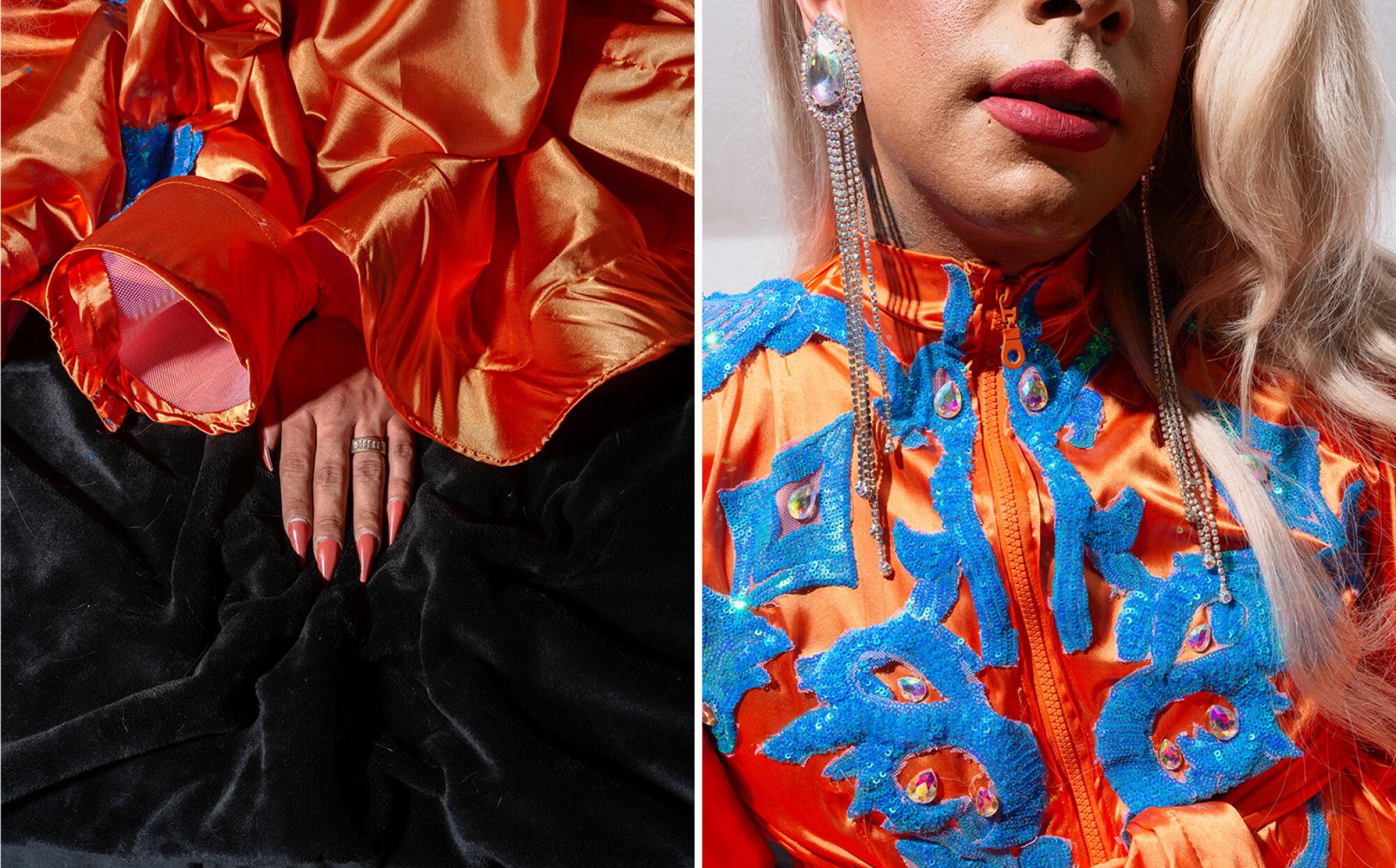
But it came organically to her. Befierce soon realized she had a knack for the kind of mothering and mentoring she once wished she’d had, and not just when it came to her drag career.
The relationship with her own mother has been fraught ever since her coming-out (“I was the first openly gay person in my whole family,” she notes), an unsavory reminder of the machismo that characterizes many Latino households still. And it’s what first drew her to building a house of her own, even one not immune from everyday family dynamics.
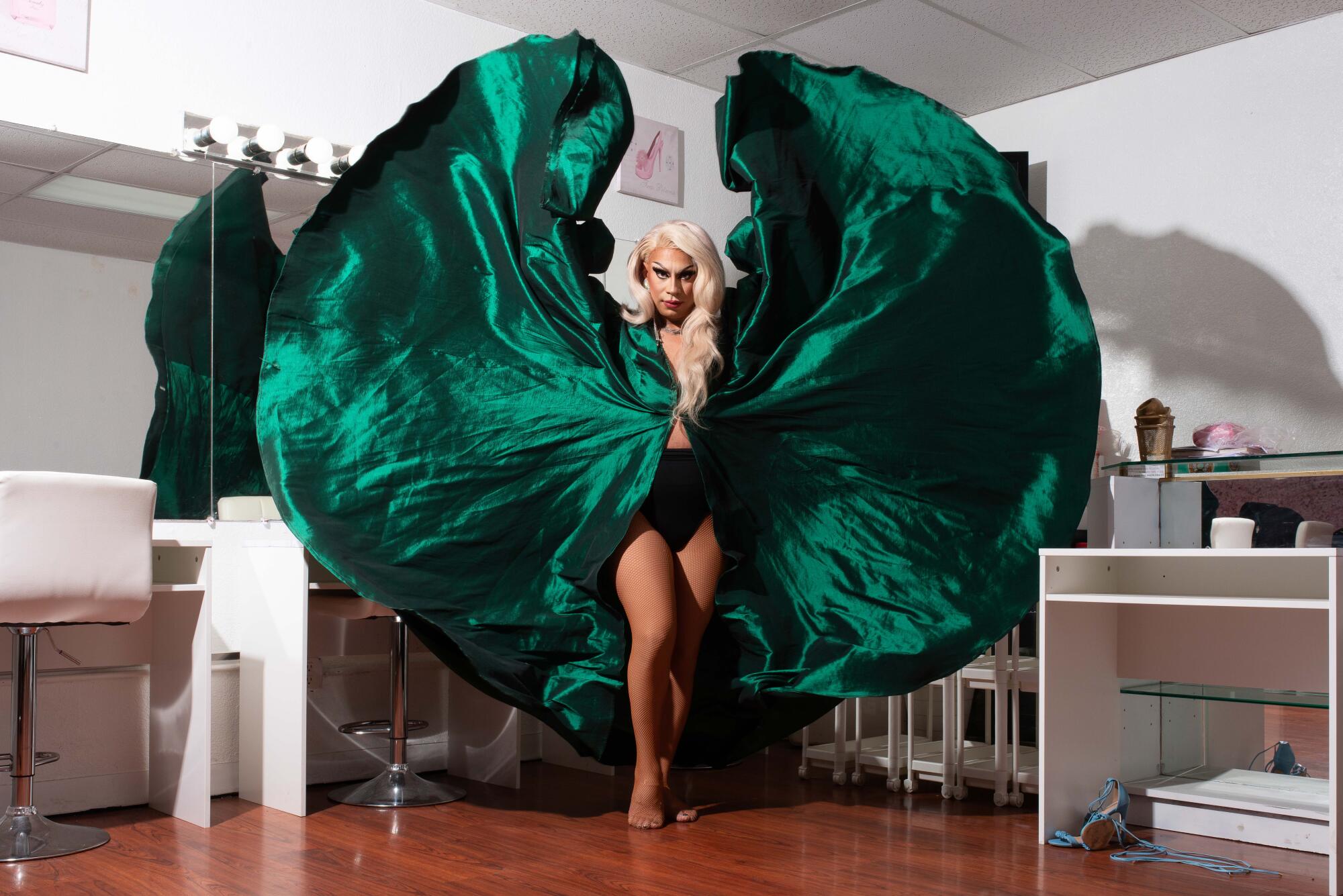
“You put so many personalities in one room, it clashes. We’re gonna have drama. We are a family. Families have drama, whether you’re blood or not. But at the end of the day, communication goes a long way. And that’s what’s going to keep us together.”
Calypso Jetè Balmain
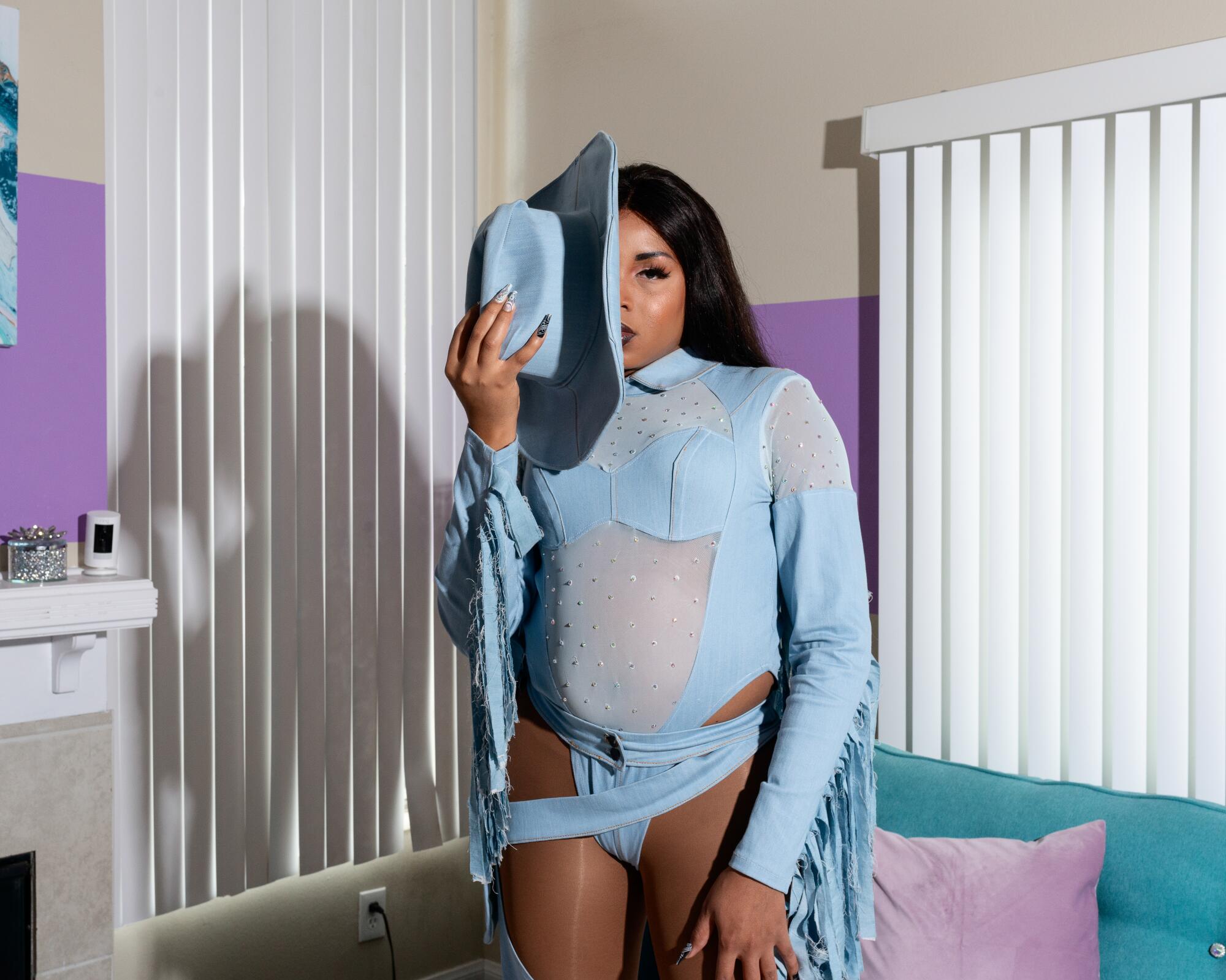
Taking care of others demands self-assured selflessness. For Calypso Jetè Balmain, it’s gotten to the point where she rarely realizes just how much of her time is spent putting her kids first. But she wouldn’t have it any other way.
“I honestly give a lot of all my time and resources and everything to them,” the former “Legendary” winner says with a wide, proud grin. “I make sure they will eat before I eat. I make sure they’re always taken care of. A lot of my money that I make from performing goes to them. I always put it back into them to do what they want to do.”
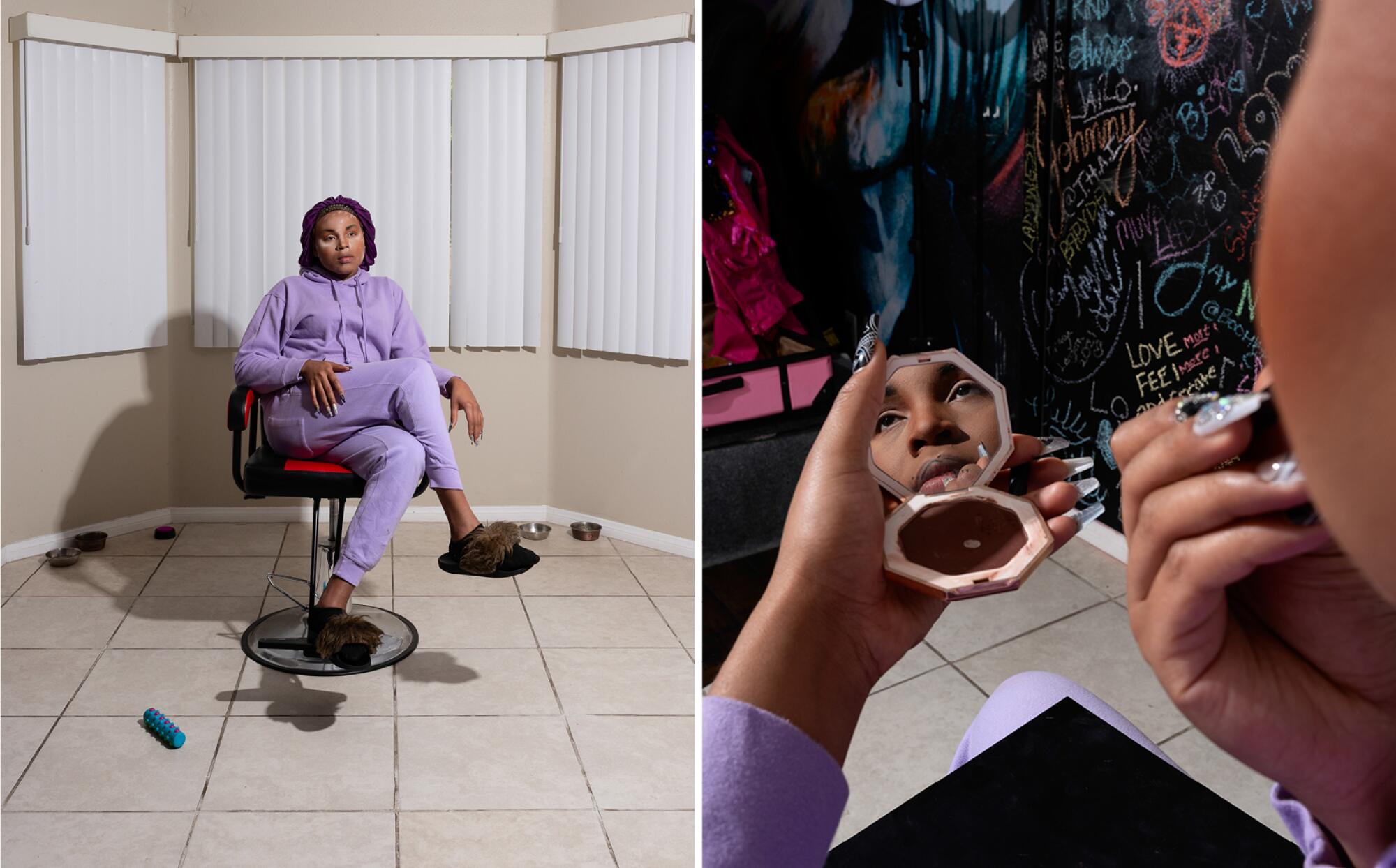
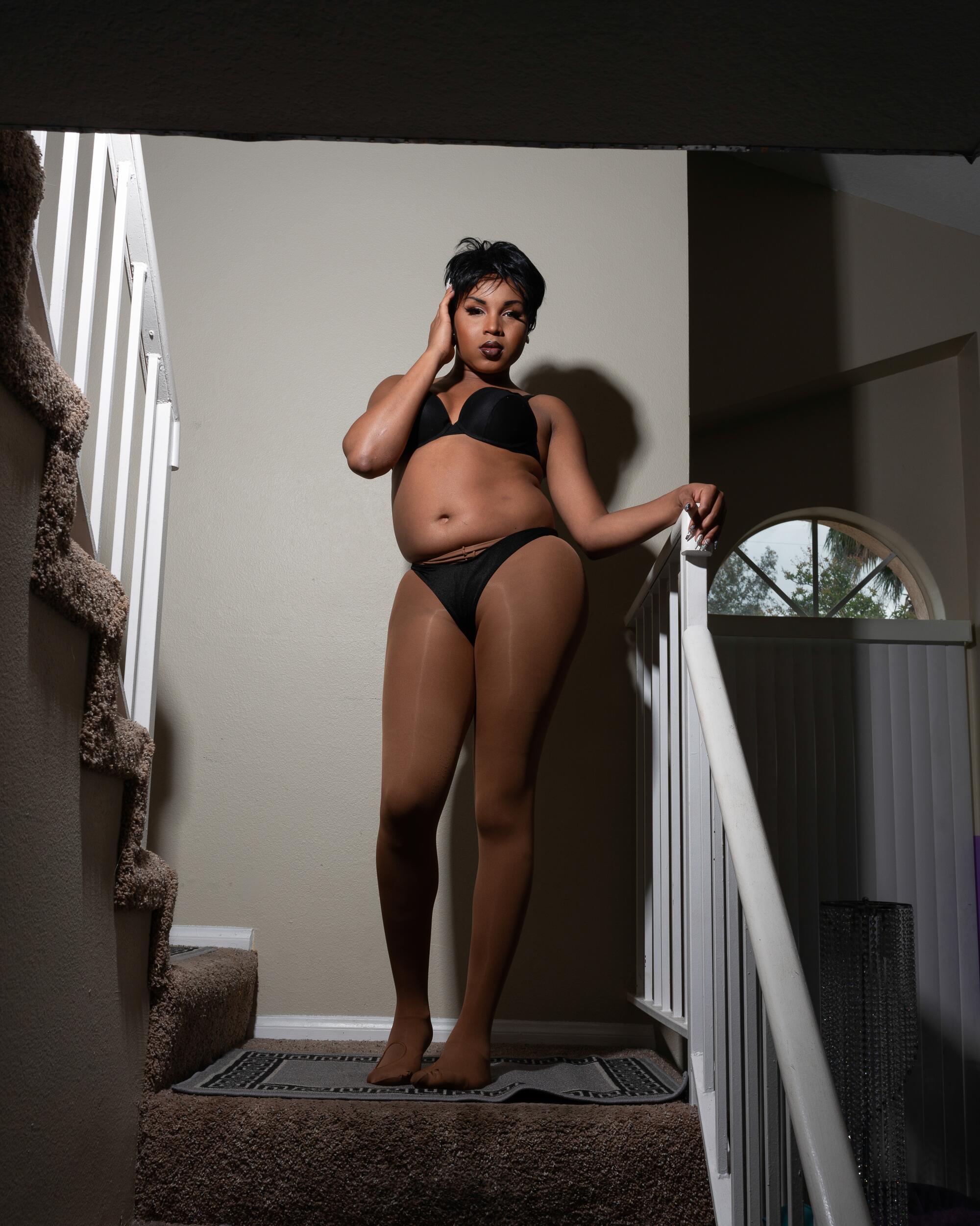
Calypso is a mother to more than a few drag daughters and 28 folks in the ballroom scene. She’s also adopted several “personal kids,” as she calls them, people who come from damaged homes and have sought her warmth and guidance outside of the professional trappings of drag or ballroom. It’s clear the multitalented performer has plenty of love and time to share. She lights up thinking back to how she was first floored when a fellow queen her age asked outright to be her daughter years ago at a club. The mothering instinct that moment instantly awoke has not yet dimmed.
“Sometimes I feel like I don’t spend enough time for myself. And I feel like I need to really take time for myself,” she confesses.
“But then I think, no, no, no, no. This is not about me at the moment. I appreciate and I cherish making time for them so they can get what they need done. Because when I see them thrive, then that makes me thrive.”
Filmed in and inspired by L.A., Season 2 of HBO Max’s voguing competition ‘Legendary’ shows that ballroom culture is not limited to New York.
Rhea Litré
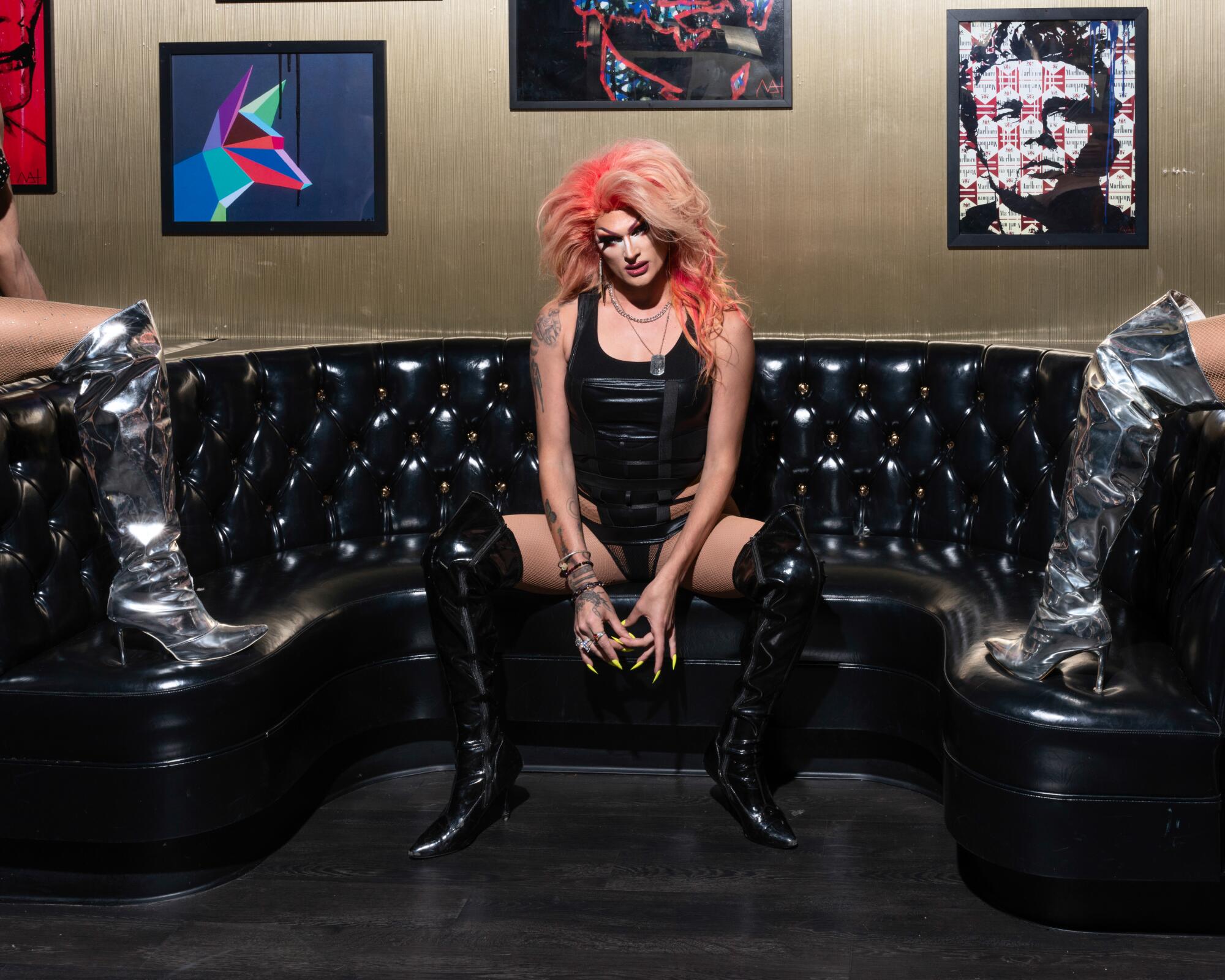
At first, the Haus of Litré welcomed only sons, no queens in the making. (A drag queen can be a mother to anyone in the LGBTQ community, not just other queens.)
“I didn’t want any girls,” Rhea confesses. “I didn’t want anyone who could borrow my hair and take my tricks.”
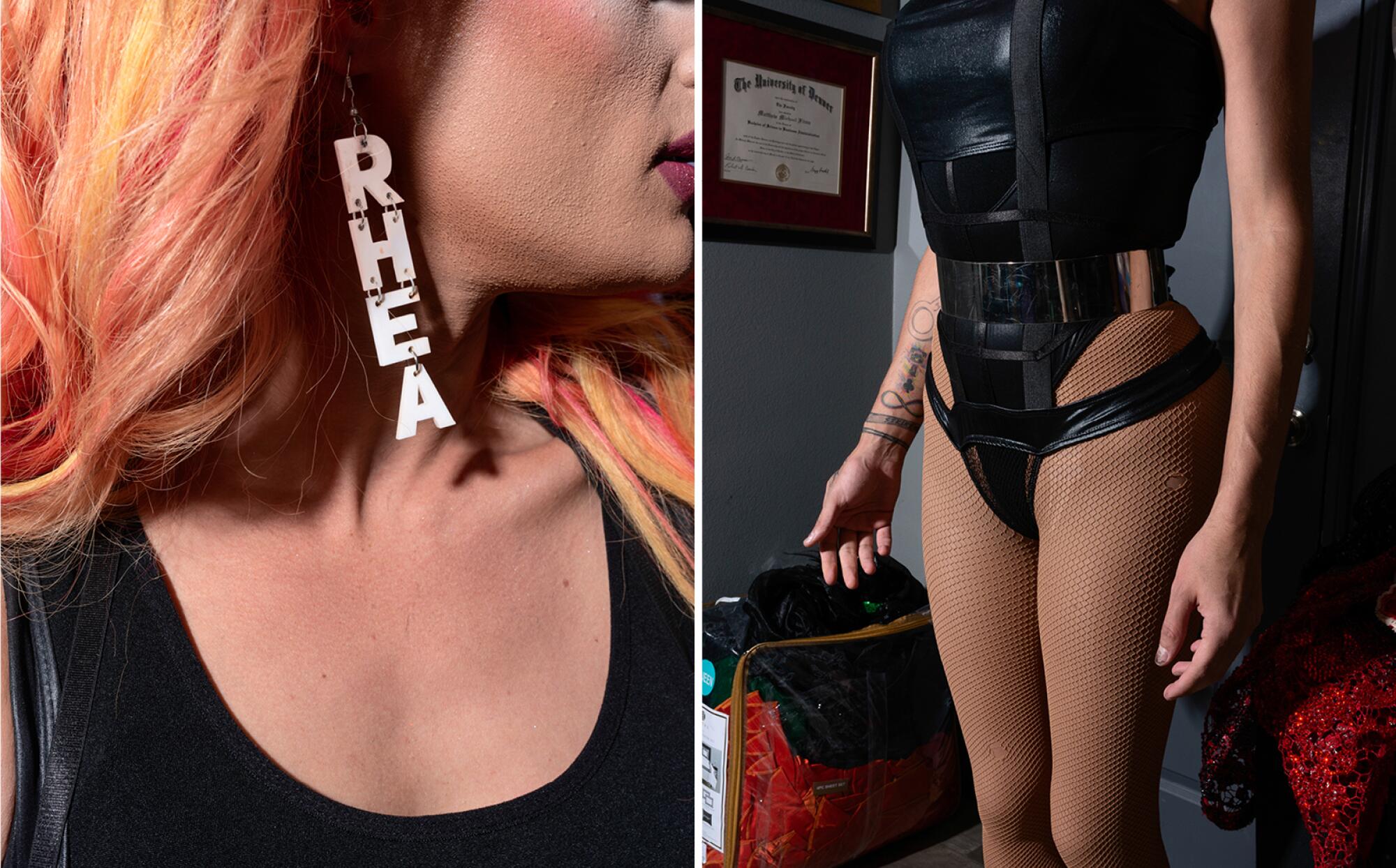
The West Hollywood queen has relented on this of late, finding there’s no need to see competition where there could be compassion. But such initial hesitation indicates what’s at the core of her own mothering: a protectiveness in tandem with a desire for success. For herself but also for her kids.
By her own admission (just listen to her track “H.O.L.E.”), the Haus of Litré is made up of movers and shakers; Of social butterflies who can key into a party vibe on a dime. Yet what brought them all to Rhea (the drag daughter of icons Mayhem Miller and Raja ) was the vulnerability she first saw in them.
It’s why Rhea prides herself on being a very hands-on mom. She’s on the phone with her kids every day. She schedules family house meetings and plans trips. She keeps tabs on their projects and makes sure to smooth over any sibling disputes (not uncommon, she admits, but proof they truly care about one another like brothers and sisters).
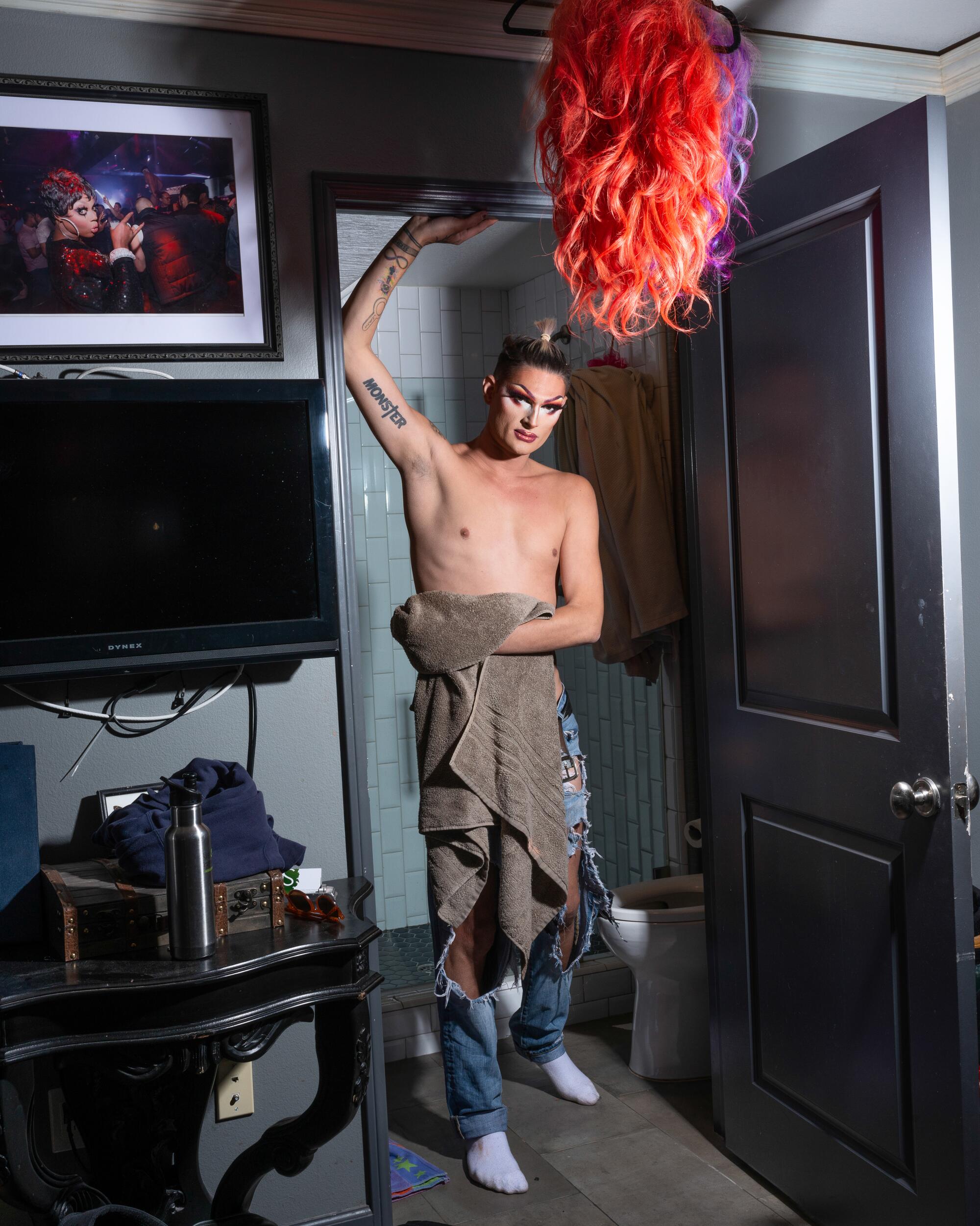
“We’re actually a family,” she beams. “A family fueled by emotion and passion for what we do and what we do for each other. I love my [biological] family, but I really understood what family was when I met my children because it was somewhere that I wanted to be, not somewhere I had to be.”
Bibi Discoteca
Motherhood knows no age. Bibi, who started doing drag a few years ago, is a self-described “young mom” to the two daughters who make up the Haus of Discoteca. As her name suggests, Bibi hopes her drag takes you places; she’s constantly aiming to transport you to a throbbing dance floor.
“Nightclubs for queer people in general are like our churches,” she says. “It’s the place where we’re able to explore ourselves really, and work out all those kinks and see what’s really going on with us.”
As someone who was first mothered by a couple of drag queens (one of whom had been her childhood Taekwondo instructor), Bibi knows there’s more to this than giving tips on how to look your best (though there’s that). It’s about building a safe space for growth.
26-year-olds are sharing the pains of their age: “Society is like, ‘You’re not thinking about having kids or getting married? What’s your aspiration, what’s your goal?’”
When asked to share her proudest moment as a mom, for instance, she turns not to her family’s new monthly “Divas de la Discoteca” nightlife event at Mi Corazon in Los Feliz but to moments spent stoning outfits the night before. Her drag name may conjure up kaleidoscopic dreams of L.A.’s nightlife scene but it is the domesticity she most cherishes.
Within this world, Bibi sees her role as a drag mom to encourage her daughters’ creativity.
“What do you want to do as an artist?” she asks them. “Who are you trying to be? What type of message are you trying to spread?”
And, perhaps more important: “OK, so how are we gonna make that happen?”
Metaworld Piss
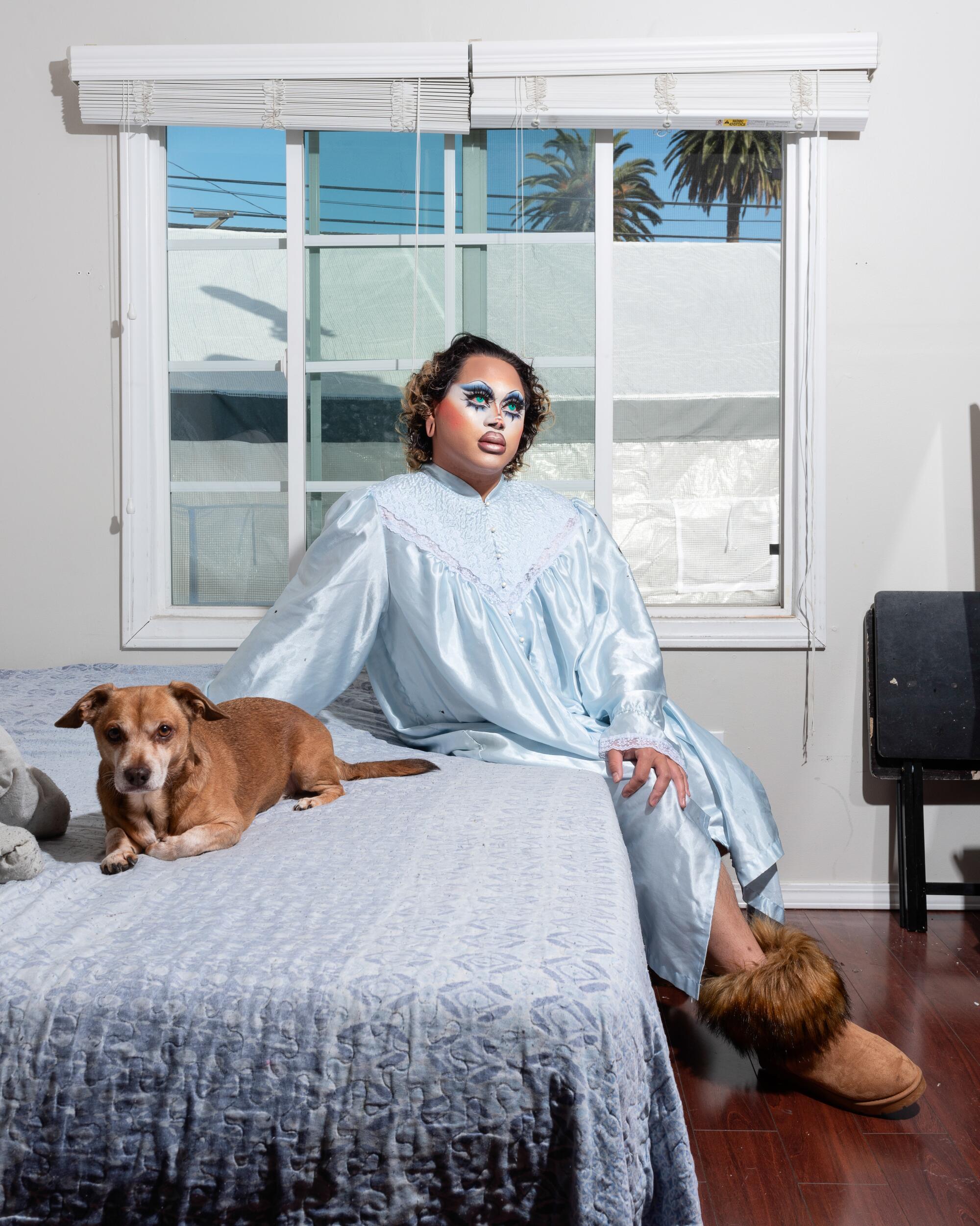
When she first started doing drag, Metaworld Piss modeled herself on a “drunk suburban mom on Xanax.” She’s since moved on from that aesthetic.
“Now I feel like it’s more neon Goth girl goes to Tokyo,” she explains. But there may have been something quite revelatory about the kind of woman — the kind of mother, in fact — she first sketched out with her drag.
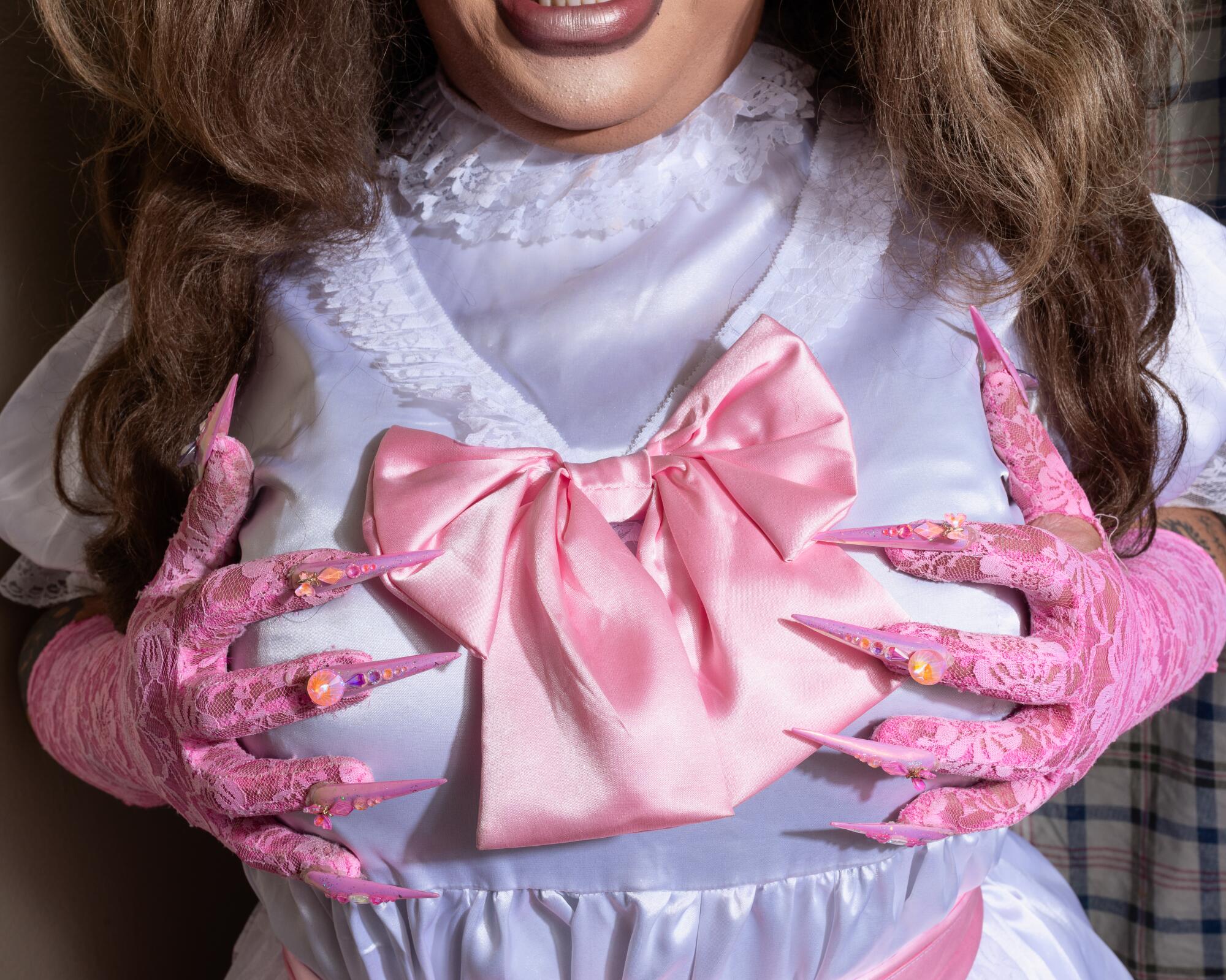
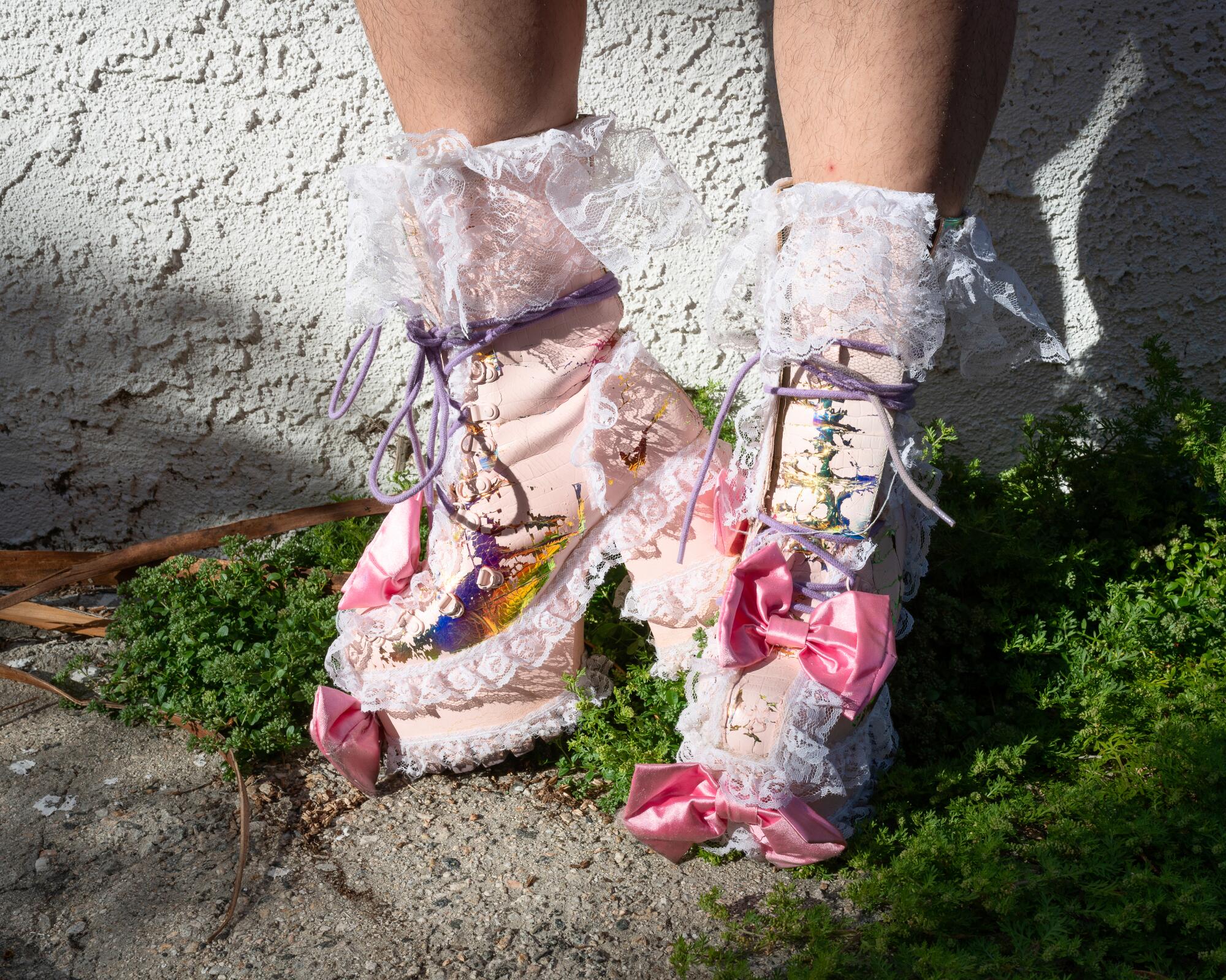
To hear the young Filipino queen talk about the road to building Haus of Piss, the family she’s since created with her partner, known as Angry Baby, is to eavesdrop on a story about how mothering can heal.
“It’s out of my character to have kids,” she admits. “But I just feel like we’re all emotionally damaged, so I just felt like I should take them under my wing. I never really expected to be a mom; actually, I was looking for a mom.”
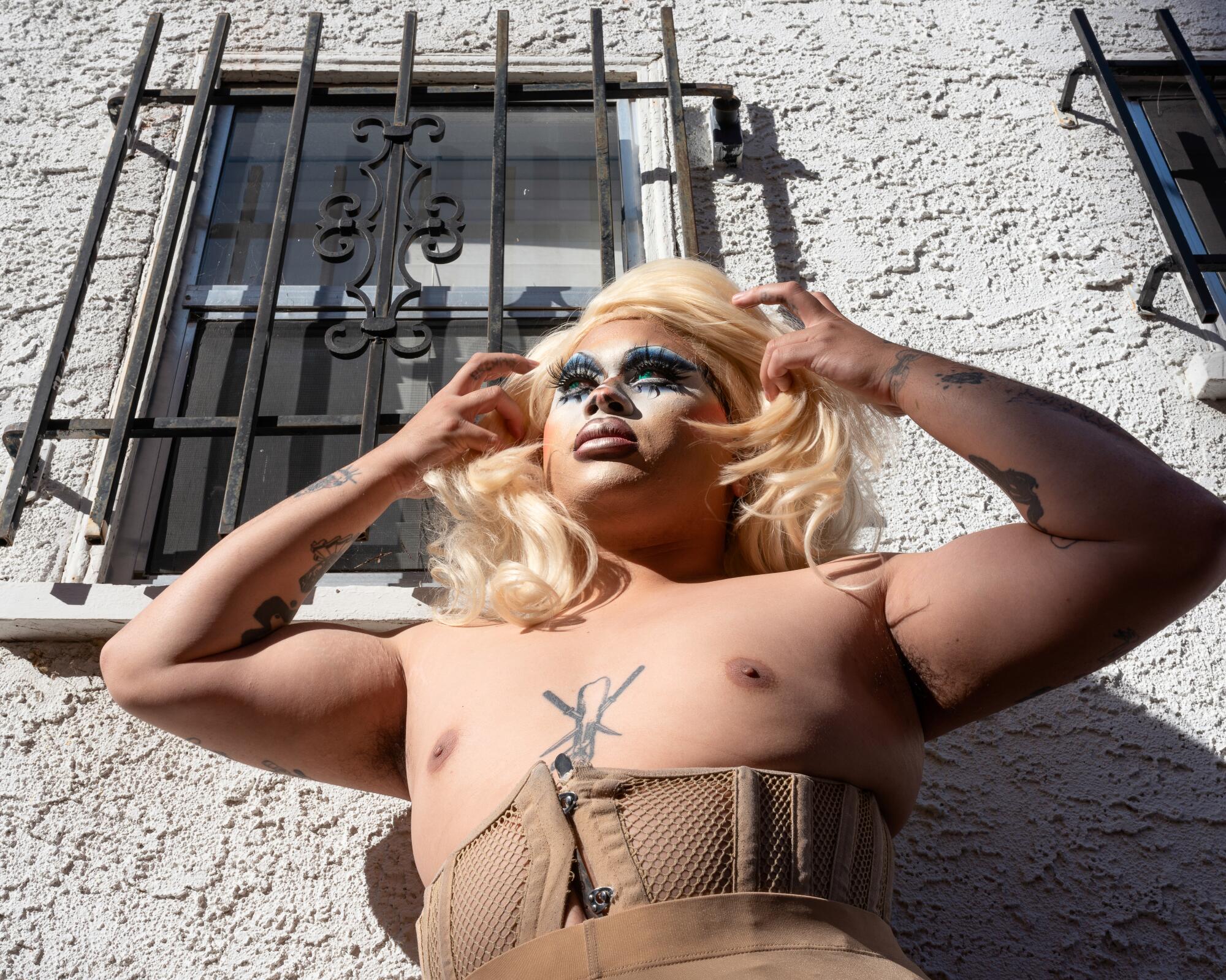
Through her relationship with her two drag daughters, Metaworld has created a welcoming space where old hang-ups (about homophobia and transphobia) could be neutered when surrounded by a tightknit group. Finding such comfort has helped her and her daughters confront their own battles with mental health.
“We just started supporting each other in that way even though it’s been hard. Because we all are damaged queer people. Sometimes we get in the way of each other. But learning to navigate that and grow together has been the best thing I’ve gotten from this experience.”
Phillip J. Hurt
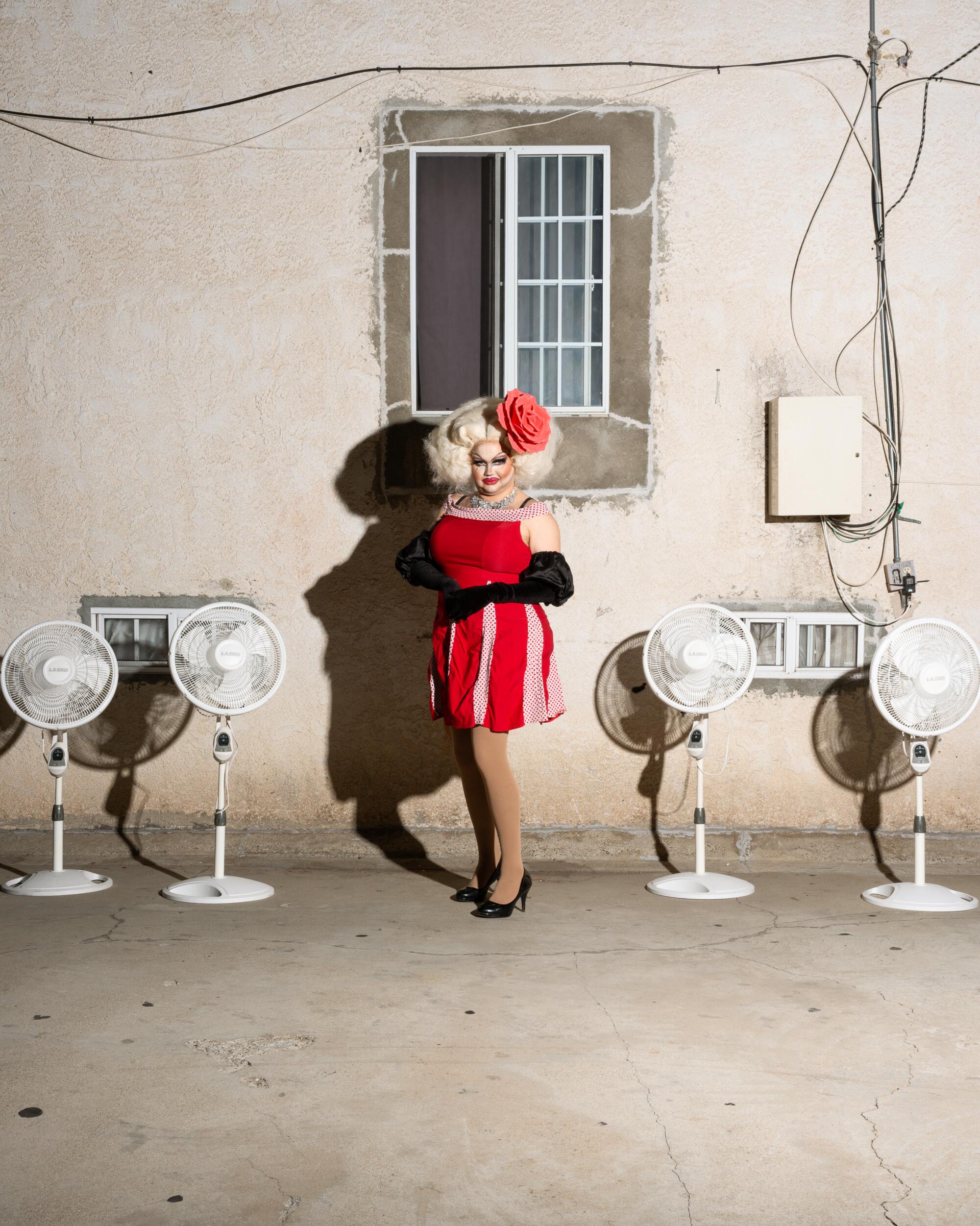
Sometimes you have to build the spaces you wish to belong to. That’s how Haus of Nacas was first born.
Seeing a lack of venues where queens like them could perform and thrive, Phillip J. Hurt opened up their own backyard. Against that backdrop, they encouraged those who are now part of their house to embrace the very spirit their name encompasses. “Naco,” after all, is here reclaimed away from its derogatory usage to refer to those deemed classless.
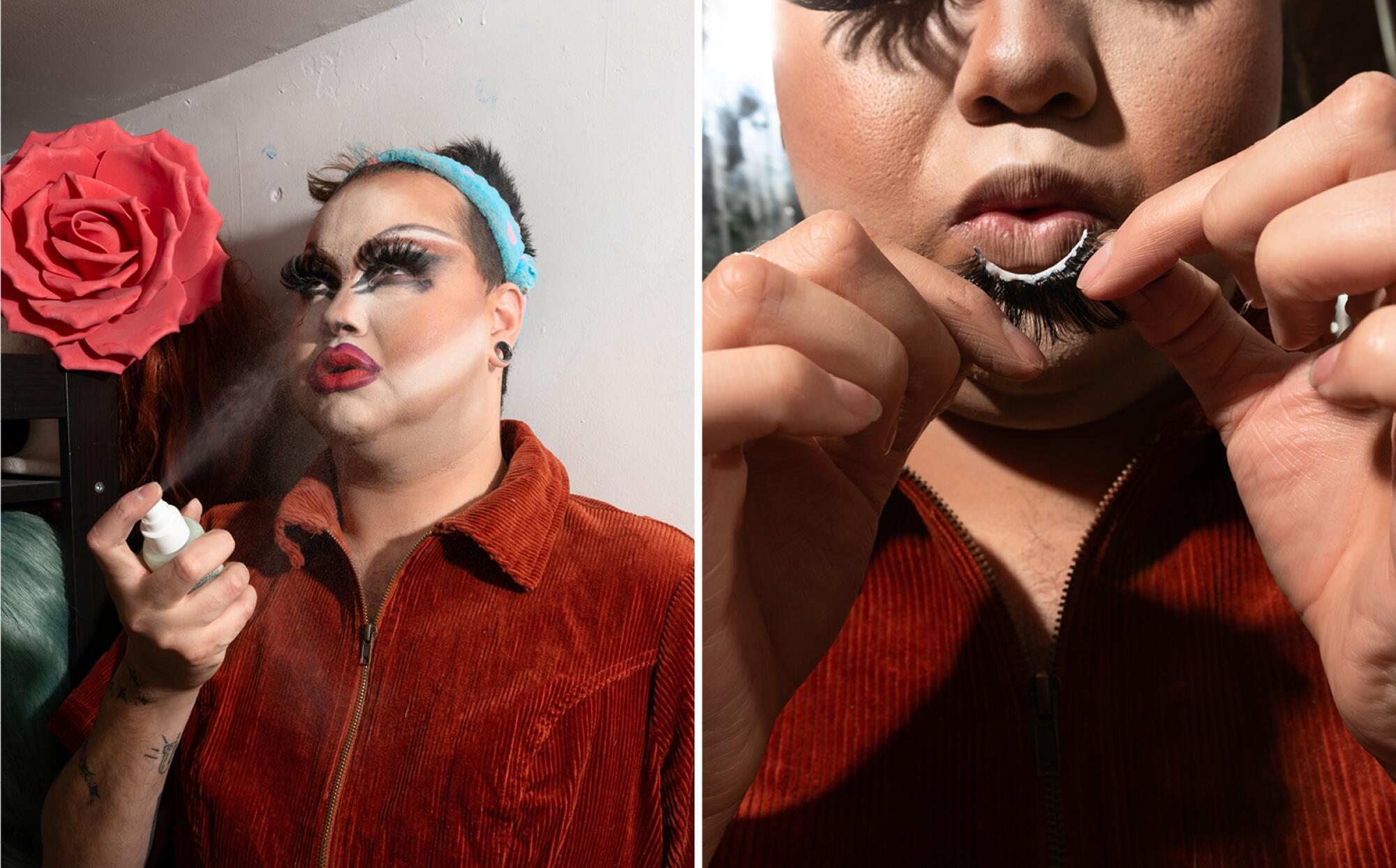
“I think my house name says it all. It’s very nitty-gritty, dirty, down and ugly,” Philip explains. “I just love making people look at it and wonder, ‘Was this intentional? Is it an accident?’”
Philip conceived Haus of Nacas as “the house of the motherless.” Here is a space for those girls who don’t fit the mold, who may not be accepted elsewhere. But even as there is an obvious sense of nurturing involved, Philip acknowledges they’re a bit wary of labeling themselves a mother.
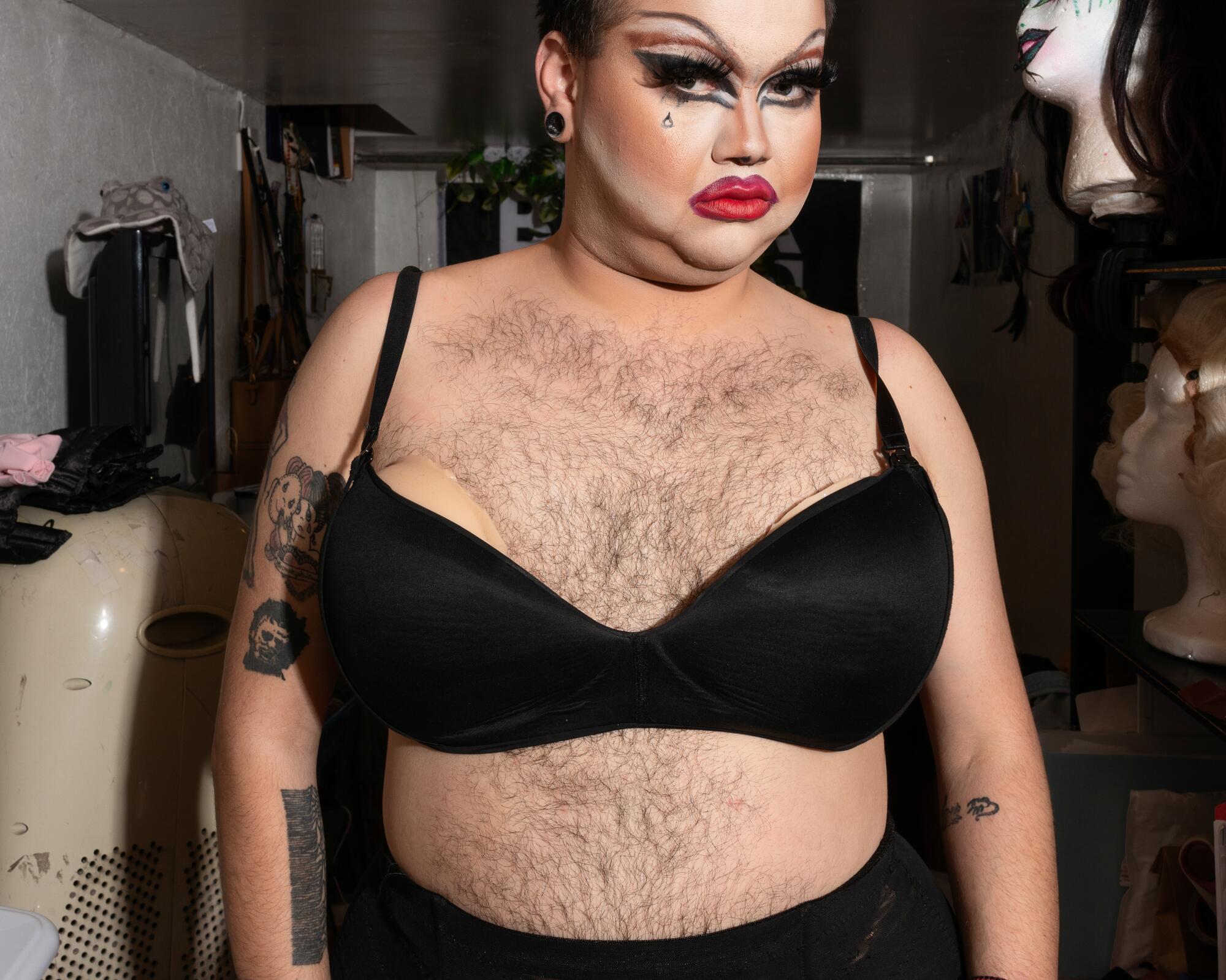
“For me, the word ‘mother’ carries a lot of power to it. To me, a mother is someone you owe your existence to. Someone who you owe absolutely everything to. So although I do take all of these girls under my wings, I consider the Nacas family, all of us, as each other’s adopted sisters. Because I wouldn’t want to place that level of them owing me anything. They are their own individual talent. They are their own individual people.”
More to Read
About this story
Sign up for The Wild
We’ll help you find the best places to hike, bike and run, as well as the perfect silent spots for meditation and yoga.
You may occasionally receive promotional content from the Los Angeles Times.
